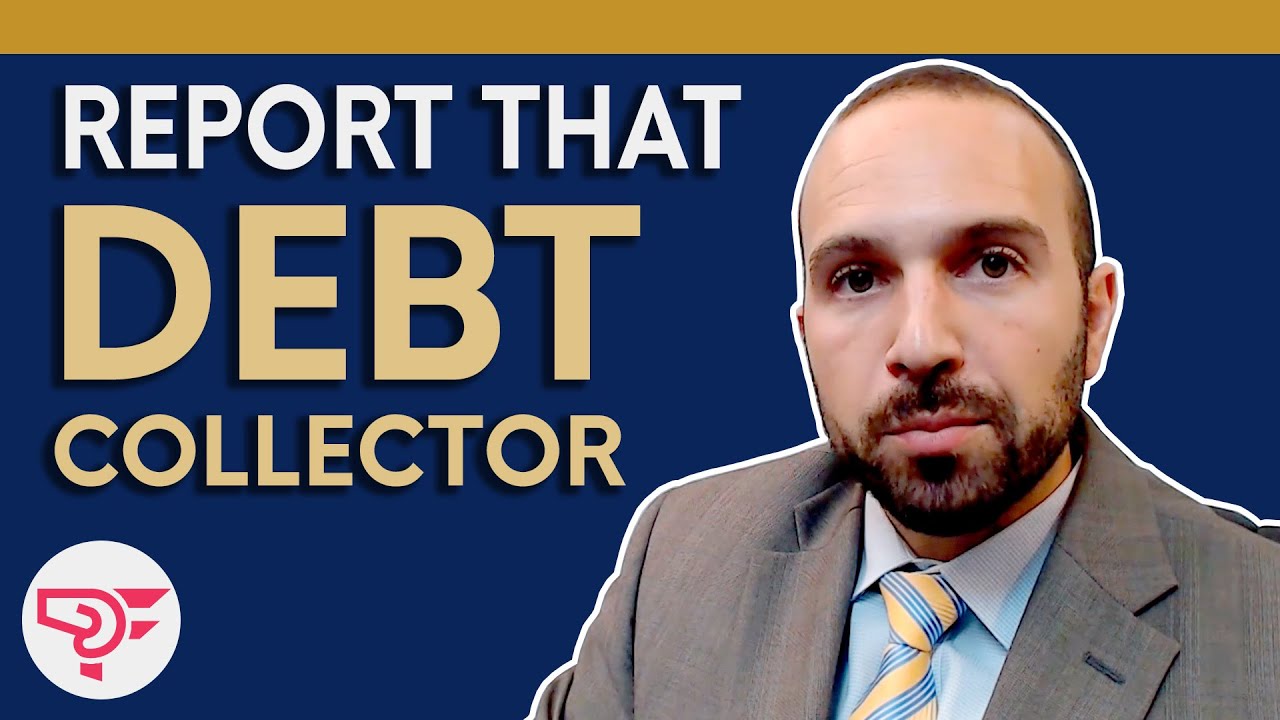How to Report a Debt Collector For Harassment

How to Report a Debt Collector For Harassment?
Today, we’re going to be talking about how to report debt collectors. Hi, my name’s Mike Ziegler, I’m the managing attorney for the Debt Fighters. We’re a Florida law firm focusing on helping consumers strategically eliminate serious debt.
Like we’ve talked about in other segments, there are several laws that control how debt collectors can approach the collection process. Even if you owe a debt, that doesn’t mean that all of your rights are lost. Debt collectors still have to approach you professionally and with decency. Debt collectors that violated your rights, there are a few different steps that you can take to report them.
Step number one is to take notes. You’ll find online of variety of different call logs, but really you don’t need anything other than a piece of paper to record the time of the call, the phone number that you’re being called from, the company that’s calling, and who their individual representative is, and notes about the call itself. These notes are important, this log is important because this may provide information later that can show a pattern of overly frequent calls or abusive communications. Make sure to keep track of all of your information.
The next step after you have kept your call diary will be to make a report. Now, there are some governmental agencies that provide oversight for debt collection. The state of Florida provides a registry for debt collectors, and they oversee debt collection conduct if it’s been overly aggressive, and particularly if debt collectors have given the impression that they are a law firm, when they’re not a law firm. The state of Florida also provides the Florida attorney general, who similarly investigates abusive collection practices.
On the federal side, the CFPB, the Consumer Financial Protection Bureau, also provide some oversight. They have a reporting mechanism right on their website. Now sometimes government support isn’t enough, and it’s more appropriate to take action in your own hands. Both federal and state laws provide protections, and a lot of times these protections provide rights as a private attorney general. What that means is that when you are taking action to control unlawful debt collection, you’re doing so not only for your own protection, but to curb this behavior so it doesn’t happen to other consumers.
For those reasons, there are a number of punishments that can be available if a debt collector has violated your rights. There is what we call a statutory penalty, which is to say, just by virtue of violating your rights, the collection company may have to pay something. Under the Florida law, there can be what we call punitive damages. Particularly if this is not a one off event, if this is a debt collector who’s repeatedly violated your rights and the rights of other consumers, then the state of Florida may say that there is a monetary punishment for ongoing bad conduct.
There can be actual damages, so if we can show that there has been economic or emotional harm caused by the bad conduct, then there may be a monetary assignment for those issues. In addition, under these laws, the bad actor has to pay before your attorney’s fees and litigation costs. This is particularly important, because it enables law firms like ours to be able to enforce consumer rights without the consumer having to pay us up front. The bad actor has to pay for our time for them. If you’d like to learn a little bit more about your rights, if you think that collection companies have overstepped your boundaries, I encourage you to schedule a complimentary consultation. One of our qualified attorneys will evaluate your situation for you.

